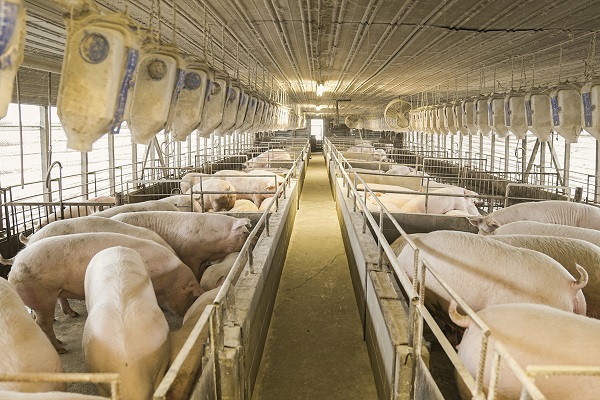EarthTalk®
From the Editors of E – The Environmental Magazine

Newer technology that has farmers and ranchers capturing methane from their livestock waste is better for the planet than not having it. Credit: Mark Stebnicki, Pexels.
Dear EarthTalk: Is encouraging dairy farmers and cattle ranchers to capture methane gas from their livestock’s manure good or bad for the planet? — Phil Onorato, Pittsburgh, PA
Methane capture, the process of using the decomposition of livestock byproducts like cow and hog manure to generate electricity, is a promising technology. It helps to resolve existing, and for the time being, necessary evils such as climate-warming methane emissions from cattle and pigs. It works by exposing the livestock waste to bacteria and enzymes that break down the embedded methane into usable natural gas that can be pumped right into generators.
Large farms and livestock operations that employ this now widely available technology can turn their cattle and pigs from a climate scourge—methane is a much more potent greenhouse gas than even carbon dioxide—into at least a producer of renewable energy (even if it is a fossil fuel).
One benefit of generating natural gas this way is that the resource is renewable, as long as cows and pigs keep defecating. Another is that methane capture accommodates existing technologies. Methane capture fuel and traditional natural gas use the same infrastructure.
The downside of methane capture, at least as far as environmentalists are concerned, is that it perpetuates the fossil-fuel-oriented status quo and further incentivizes the factory farm business model instead of a shift to true zero-emission renewables like solar, wind and geothermal. The factory farm business model has wreaked havoc on the environment from coast to coast, from pig waste overflows in North Carolina to poisoned waterways in the Midwest from runoff contaminated by livestock waste to California drought from cattle ranches claiming more than their fair share of water to quench cattle thirst.
But proponents of using methane emissions to offset methane production by livestock argue that their way of producing energy is just as “zero emission” as solar or wind. Yet we wouldn’t even need the process of methane capture to begin with without the livestock trade. Carbon offsets also do not reduce methane emissions, they simply compensate for them. In a sense, they are robbing Peter to pay Paul.
Policy pushes abound on both sides of the issue. These include the California state government walking a fine line between supporting its farm-based economy, while leaning toward a greener future through incentivizing methane capture. Their opponents, including advocacy groups like Food and Water Watch, the Sierra Club, the Southern Environmental Law Center and the Natural Resources Defense Council, are coordinating on crafting legal solutions to manure-related pollution issues.
Methane capture may be a controversial technology, but it is worth investigating. Solutions that can work right now have some benefits over solutions that are only possible in the distant future. But future planning will require more ambitious solutions than temporary replacements.
CONTACTS:
California Rejects Petition to Drop Factory Farm Gas From Energy Credit System, foodandwaterwatch.org/2022/01/26/california-rejects-petition-to-drop-factory-farm-gas-from-energy-credit-system/
For dairy farmers, this technology turns methane from cow manure into cash, marketplace.org/2021/07/21/for-dairy-farmers-this-technology-turns-methane-from-cow-manure-into-cash/
EarthTalk® is produced by Roddy Scheer & Doug Moss for the 501(c)3 nonprofit EarthTalk.
See more at https://emagazine.com
To donate, visit https//earthtalk.org
Send questions to: question@earthtalk.org
